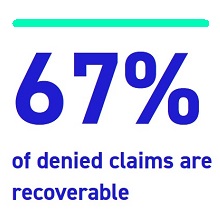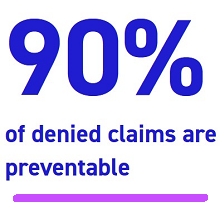HealthcareDive: Senate report slams Medicare Advantage insurers for using predictive technology to deny claimsBy: Susanna Vogel | Published on: October 21, 2024UnitedHealth, CVS and Humana used technology to increase MA prior authorization denials for post-acute services, boosting profits, according to a report for a Senate subcommittee. Dive Brief:
Dive Insight:Prior authorization requires providers to submit paperwork to insurers certifying that treatments are medically necessary prior to performing them. Insurers argue that prior authorization curbs unnecessary treatments, saving the healthcare system valuable dollars. Meanwhile, providers and other critics argue it’s burdensome — and used by insurers to avoid paying for medical care. In recent years, insurers have increased their denials of prior authorization requests, particularly for patients covered by Medicare Advantage. The 54-page Senate report argues this uptick in denials is intentional. “Medicare Advantage insurers are intentionally using prior authorization to boost profits by targeting costly yet critical stays in post-acute care facilities,” the report says. Between 2019 and 2022, UnitedHealthcare, Humana and CVS each denied prior authorization requests for post-acute care “at far higher rates than they did for other types of care, resulting in diminished access to post-acute care for Medicare Advantage beneficiaries,” according to the report. In those four years, UnitedHealth’s post-acute services denial rate increased from 8.7% to 22.7%, the report found. Meanwhile, UnitedHealth’s skilled nursing home denial rate increased ninefold. These increases coincide with UnitedHealth’s use of NaviHealth-backed nH Predict, an algorithmic tool used to manage claims denials, the Investigations subcommittee alleges. The tool is at the center of a lawsuit filed in November 2023, which alleges UnitedHealth inappropriately relied on the algorithm to adjudicate MA claims despite knowing nH Predict was riddled with errors. UnitedHealth denies the lawsuit has merit. CVS similarly rolled out a “Post-Acute Analytics” project in 2021, which harnessed AI to reduce money spent on skilled nursing facilities, according to the report. In terms of savings, the initiative was a wild success. CVS initially expected the algorithm would save the company $10 million to $15 million in the first three years. However, several months later, CVS projected $77.3 million in savings during that same time period, the Investigations subcommittee found. Similarly, Humana’s denial rate for long-term acute-care hospitals increased 54% between 2020 and 2022 following training sessions about evaluating prior authorization requests for post-acute services. The sessions allegedly included tips on how to justify denials when speaking to providers. Research has shown patients who appeal preauthorization denials are likely to win. As of 2022, over 80% of appealed MA prior authorization denials were decided in patients’ favor. However, few beneficiaries actually appeal coverage denials, according to provider and patient advocacy groups. In light of the findings, the Senate subcommittee recommended the CMS conduct targeted audits of insurers’ prior authorization data. It also asked regulators to consider expanding regulations governing the issue of predictive technologies to ensure workers aren’t bound by the tools’ recommendations when making final claims decisions. Lawmakers have signaled interest in overseeing payers’ use of AI. Last spring, the Senate subcommittee held a hearing on AI’s role in increased denials. “I want to put these companies on notice. If you deny lifesaving coverage to seniors, we’re watching, we will expose you, we will demand better, we will pass legislation if necessary, but action will be forthcoming,” Sen. Richard Blumenthal, D-Conn., chair of the Permanent Subcommittee on Investigations, said at the time. |




